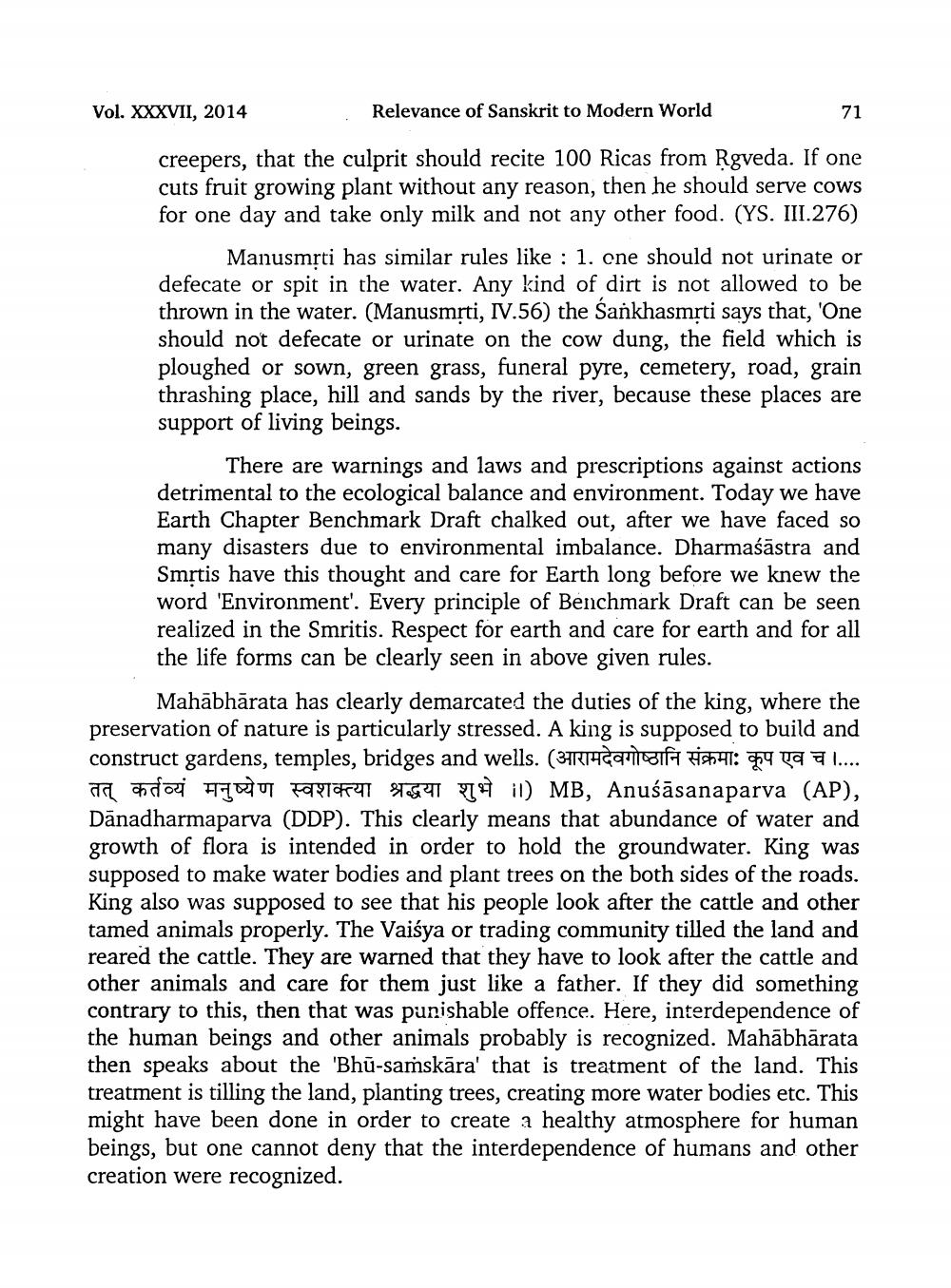________________
Vol. XXXVII, 2014
Relevance of Sanskrit to Modern World
71
creepers, that the culprit should recite 100 Ricas from Rgveda. If one cuts fruit growing plant without any reason, then he should serve cows for one day and take only milk and not any other food. (YS. III.276)
Manusmrti has similar rules like : 1. one should not urinate or defecate or spit in the water. Any kind of dirt is not allowed to be thrown in the water. (Manusmrti, IV.56) the Sankhasmrti says that, 'One should not defecate or urinate on the cow dung, the field which is ploughed or sown, green grass, funeral pyre, cemetery, road, grain thrashing place, hill and sands by the river, because these places are support of living beings.
There are warnings and laws and prescriptions against actions detrimental to the ecological balance and environment. Today we have Earth Chapter Benchmark Draft chalked out, after we have faced so many disasters due to environmental imbalance. Dharmaśāstra and Smrtis have this thought and care for Earth long before we knew the word 'Environment'. Every principle of Benchmark Draft can be seen realized in the Smritis. Respect for earth and care for earth and for all the life forms can be clearly seen in above given rules.
Mahābhārata has clearly demarcated the duties of the king, where the preservation of nature is particularly stressed. A king is supposed to build and construct gardens, temples, bridges and wells. (3781460of T: 04 ya 2 I... a ondou Frou FOTOSTGAT T7 il) MB, Anušāsanaparva (AP), Dānadharmaparva (DDP). This clearly means that abundance of water and growth of flora is intended in order to hold the groundwater. King was supposed to make water bodies and plant trees on the both sides of the roads. King also was supposed to see that his people look after the cattle and other tamed animals properly. The Vaisya or trading community tilled the land and reared the cattle. They are warned that they have to look after the cattle and other animals and care for them just like a father. If they did something contrary to this, then that was punishable offence. Here, interdependence of the human beings and other animals probably is recognized. Mahābhārata then speaks about the 'Bhū-samskāra' that is treatment of the land. This treatment is tilling the land, planting trees, creating more water bodies etc. This might have been done in order to create a healthy atmosphere for human beings, but one cannot deny that the interdependence of humans and other creation were recognized.




